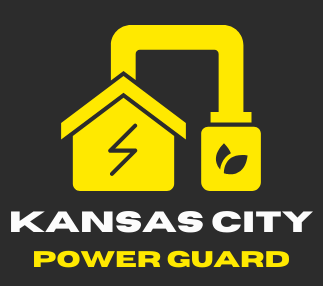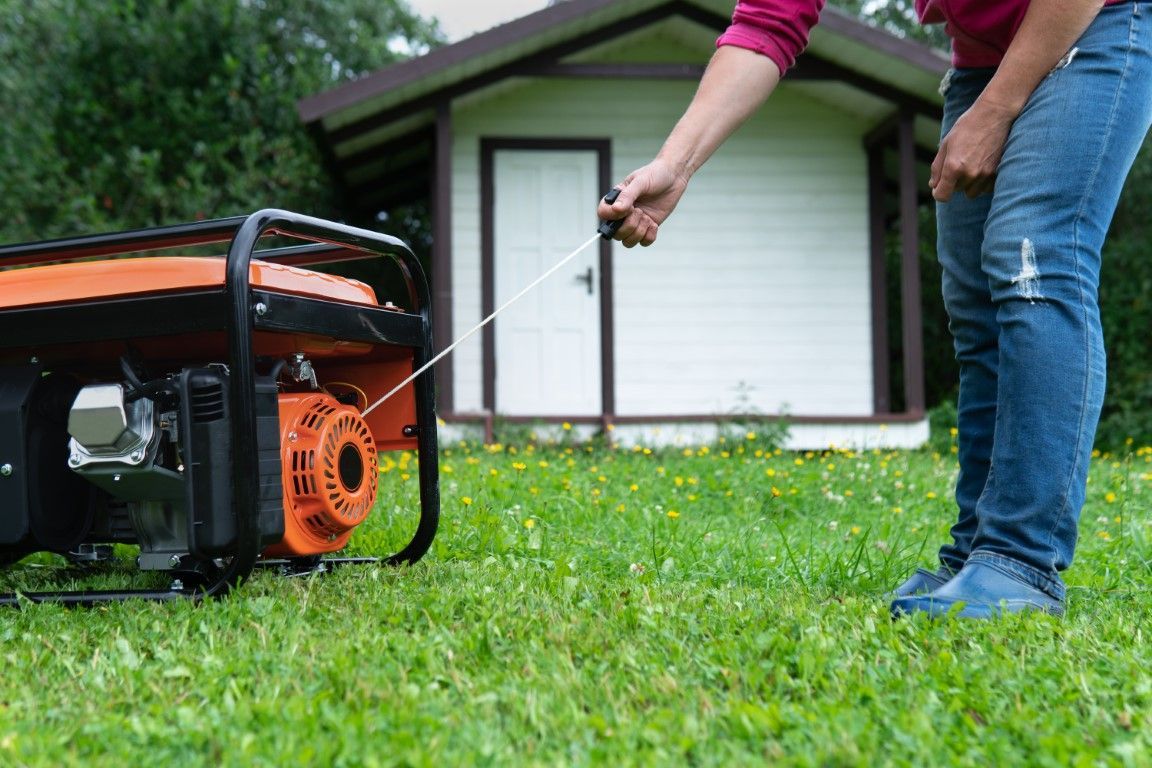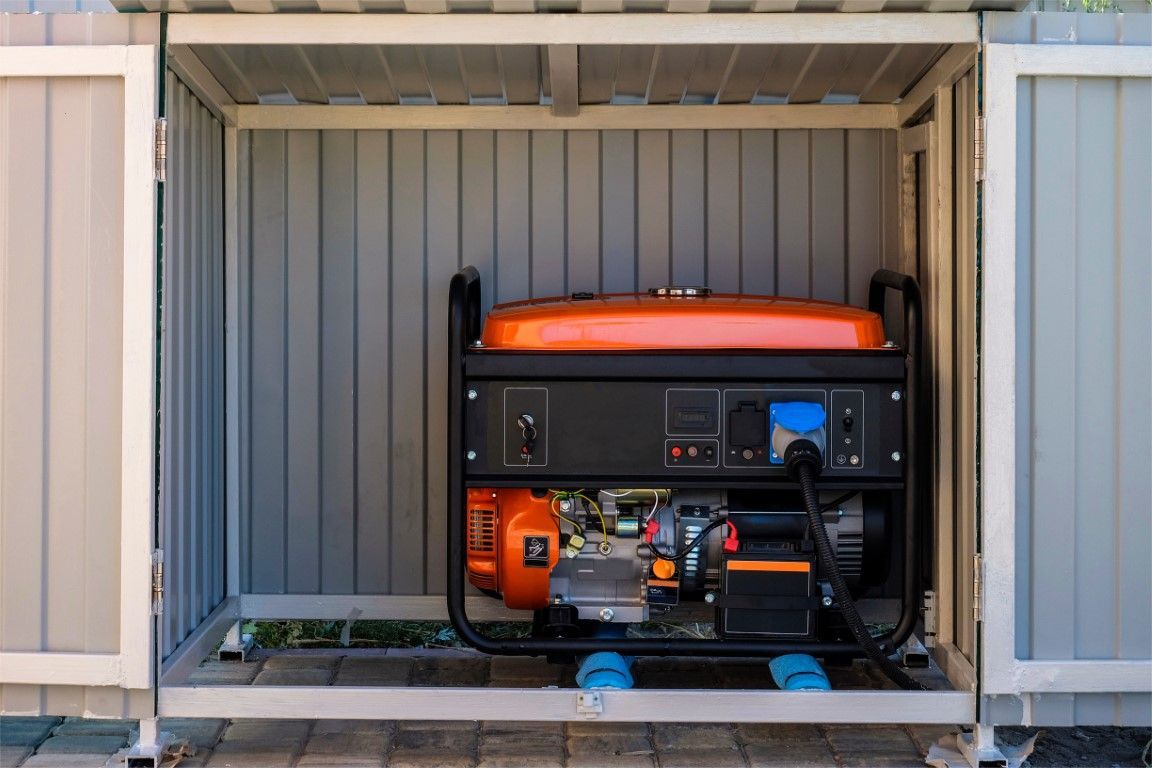
Residential Generators in Kansas City MO
Residential generators are machines that give your house electricity when the main power goes out. Imagine if the lights in your home suddenly turn off during a storm or a really hot day. A generator can turn on by itself or you can start it to keep your lights on, your fridge cold, and your air conditioner running.
Why You Need a Backup Power Source:
Having a backup power source is very important. It helps keep things like your refrigerator and heater working if the power goes out. This means your food won’t spoil, your home stays warm or cool, and your gadgets keep working. It’s not just about making things easier; it also helps keep everyone safe and comfortable.
Why Generators Are Important
- Why You Need a Backup Power Source: Having a backup power source is super important. It keeps things like your refrigerator and heater working when the power goes out. This means your food won’t go bad, your house stays warm or cool, and your electronics keep working. It’s not just about making life easier; it also helps keep everyone safe and comfortable.
- How Often Power Outages Happen: Because of the weather in Kansas City, power outages can happen often. Big storms with strong winds or heavy snow can cause the power to go out. A generator makes sure you still have electricity when this happens, so you’re not left without power.
Power Reliability
- How Often Power Outages Occur: Kansas City sometimes has power outages because of the weather. Not every storm causes an outage, but it can happen. Knowing how often power outages occur can show why having a backup generator is a good idea.
- Effects of Power Outages on Households:
When the power goes out, it can mess up everyday life. Food in the refrigerator can go bad, heaters and air conditioners stop working, and important medical equipment might not work. For families with young kids or older people, this can be even harder.

We will get back to you as soon as possible.
Please try again later.
A backup generator helps fix these problems, keeping your home comfortable and safe when the power is out.
Choosing the Right Backup Machine for Your Home
Choosing the right backup machine for your home is very important. When a storm, heatwave, or something else causes the electricity to go out, having the right backup equipment can keep your home comfortable and your family safe. This guide will help you understand what to consider when making your decision.

Types of Backup Machines
Portable Machines:
Portable machines are smaller and easy to move around. They’re more affordable and can keep essential things like your fridge, lights, and a few other devices running. They’re great for short-term blackouts and can be put away when not in use. However, you have to start them manually, and they need refueling often.
Standby Machines:
Standby machines are larger and stay outside your house all the time. They automatically turn on when the electricity goes out and can keep your whole house running. While they are more expensive and require professional installation, they’re convenient because they use the gas or propane your home already has, so you don’t need to refuel them as often.
Choosing the Right Size
Picking the right size backup equipment is crucial. If it’s too small, it won’t power everything you need. If it’s too big, it might cost more than necessary.
What You Need to Keep Running:
Make a list of the important things in your house that you want to keep running during a blackout, like the fridge, heating and cooling systems, lights, and anything else you really need.
How Much Energy the Machine Provides:

These machines come in different sizes, usually measured in watts. Pick one that can provide enough energy for everything on your list. It’s wise to choose a machine with a little extra capacity, just to be safe.
Types of Fuel
Backup machines use different types of fuel, and the kind you choose can affect how long it can run and how easy it is to use.
Gasoline:
Gasoline is easy to find, but it’s hard to store for a long time. Portable systems usually use gasoline, which is good for short-term use but requires frequent refueling.
Propane:
Propane is a clean fuel that can be stored for a long time. It’s used in both portable and standby machines. While propane tanks take up more space, they generally allow the machinery to run longer.
Natural Gas:
Natural gas is used only for standby tool connected to your home’s gas line. It’s very convenient because it doesn’t need to be stored and can keep the tool running during extended blackouts.
Installation and Maintenance
After choosing the right backup tool, it’s important to make sure it’s installed properly and maintained regularly to ensure it works when you need it.
Professional Installation:
For a standby machine, professional installation is necessary. This ensures it’s connected safely to your home’s electrical system and fuel supply. A professional can also help with any permits or inspections you may need.
Regular Maintenance:
These machines need regular upkeep to keep running smoothly. This includes changing the oil, checking the fuel, and testing the machine to make sure it’s ready to go. Some companies offer maintenance plans, or you can hire a professional to take care of it regularly.
Choosing the right system for your home involves considering the type, size, fuel, and how it will be installed and maintained. By understanding your needs and the options available, you can select a machine that will keep your home running and your family safe during any blackout.
Legal and Safety Considerations
When installing a backup machine for your home, it's important to follow legal guidelines and take safety precautions. Here’s what you need to know about building codes, regulations, and safety measures.
Local Codes
In Kansas City, there are specific building codes where you must follow the instructions on how to set up a backup tool. These codes ensure that the installation is safe and complies with local standards. They cover everything from where you can place the engine to how it should be connected. It’s important to check with your local building department to understand these codes before starting the installation.
Permits and Inspections
Most areas, including Kansas City, require permits for installing backup machinery. You’ll need to apply for a permit before you start the installation process. This usually involves filling out forms and paying a fee. After installation, an inspection is often required to make sure everything is done correctly and safely. The inspection will confirm that the engine is properly installed and meets all local regulations.
Proper Installation and Placement
Correct installation and placement of your backup system are crucial for safe operation. The machine should be installed by a professional who understands the local codes and requirements. It should be placed on a flat, stable surface outside your home, away from doors, windows, and vents. This helps ensure that exhaust fumes are safely directed away from your house and prevents any risk of fire.
Carbon Monoxide Safety and Ventilation
Those running on gasoline or propane, produce carbon monoxide, a dangerous gas. To protect your family from carbon monoxide poisoning, make sure the setup is placed in a well-ventilated area. Proper ventilation is key to ensuring that exhaust gasses are safely dispersed and do not enter your living space.
By adhering to local building codes and taking necessary safety precautions, with our other services we offer
commercial generators and
portable generators you can ensure that your backup machine operates safely and effectively, providing peace of mind during any power interruption.
Let's Connect!
We offer expert services in standby whole-house generators, ensuring your home stays powered during outages. Our team provides professional installation, maintenance, and support, delivering peace of mind to homeowners. Hire us today for reliable backup power solutions tailored to your needs.
